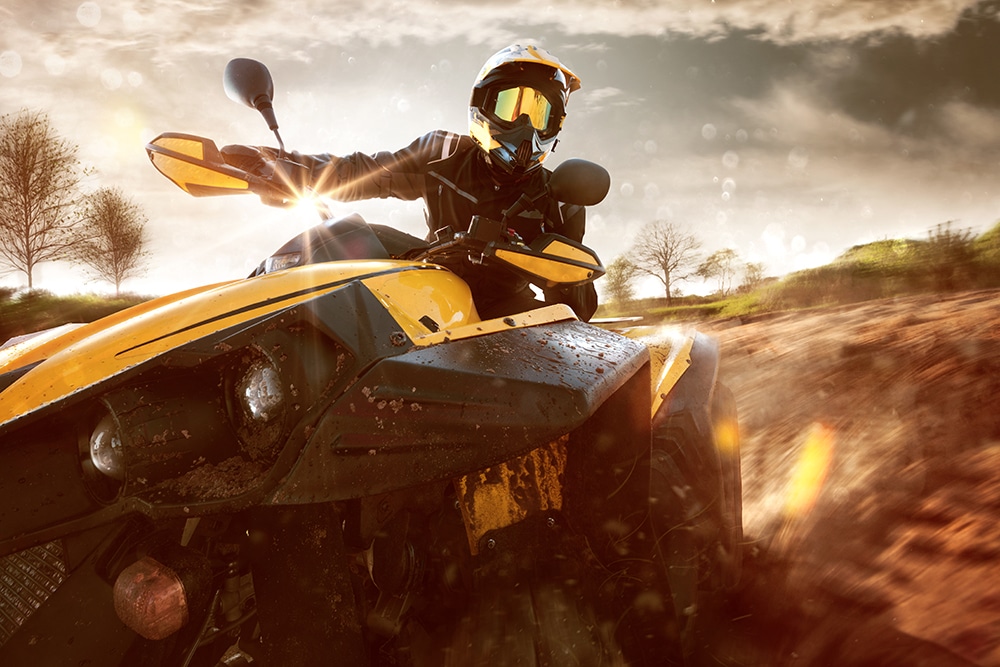As summer draws to a close, traffic on trail ways and at off-road vehicle parks declines, the temptations arise to take risks by operating your recreational vehicle in areas where riding is both prohibited—and dangerous. Dirt bikes, all-terrain vehicles (ATV’s), side-by-sides, recreational off-highway vehicles (ROV’s), and other utility vehicles are designed to operate on uneven, off-road terrain, not for surfaces that have been paved. On a smooth, paved surface like a road or parking lot, these types of vehicles are very difficult to operate and present a real risk for overturning. Despite having less traffic in parks and on trail ways after the waves of tourist depart, roads and businesses are open and well-traveled in all seasons, putting you at risk for a deadly collision with a car or truck. The U.S. Consumer Product Safety Commission (CPSC) urges riders of off-road vehicles of all types to stay off roads and out of parking lots—for your safety and for the sake of others. Aside from being illegal in most states, riding your ATV on the road is also dangerous. In the last four years, accidents involving off-road vehicles on roads or parking lots have killed more than 900 people.
Recreational vehicles are a great way to get out and see the natural beauty that surrounds us, while having a little fun. For riders of every age, there are a few things that you can do to help keep your family and friends safe when they operate all-terrain vehicles and dirt bikes.
- Always wear protective gear when you ride: helmets, gloves, boots and long pants and sleeves will provide adequate protection under normal use.
- Riders younger than 16 should never operate full-sized equipment; these vehicles are intended for use only by adults.
- Do not allow children to ride in an ORV until their feet can firmly contact the floor of the vehicle in a sitting position.
- While it may seem fun to take your friend for a ride with you on an ATV, you should never have more than one passenger per seat.
- Vehicles are designed for the safety of a designated number of riders. Exceeding the maximum number of passengers on a vehicle puts riders at risk of ejection and serious harm.
- Before operating any ROV, ATV, or other off-road vehicle, get instruction on vehicle operation and safety from a licensed instructor.
If you or someone you love has been injured in an accident involving the unsafe use of an off-road vehicle, it is important to consult with an attorney regarding your case. Medical bills, lost wages, disability can result from a negligent off-road vehicle operator. At Akinson, Petruska, Kozma & Hart, we are dedicated to fighting for our clients and serving the community. Call us today at 1.877.732.2491 or fill out the free consultation form in the sidebar to schedule your personal consultation and learn more about how our attorneys can help with your injury case or any legal needs.

